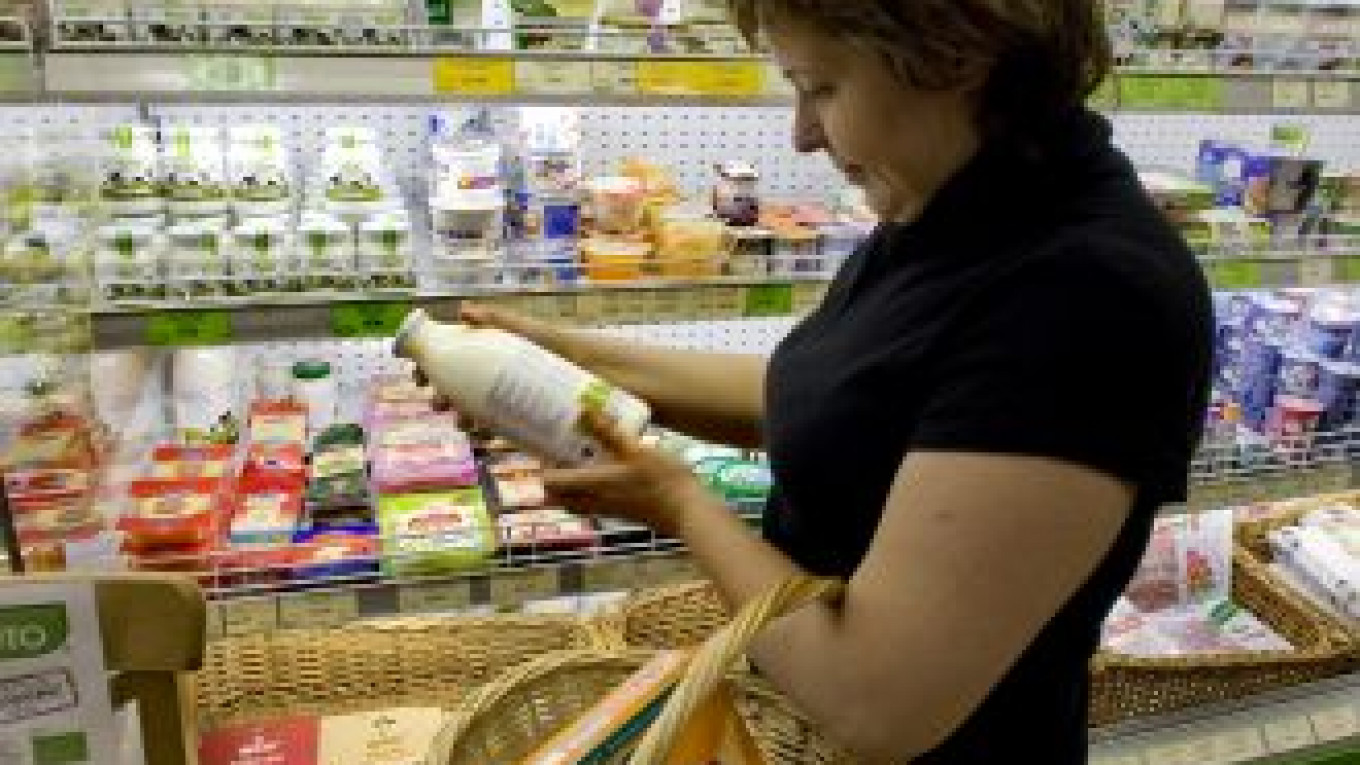The cost of living probably grew in July at the fastest rate this year as utility tariffs increased and crop losses signaled higher food prices, threatening to push inflation near the Central Bank's target.
Consumer prices grew 5.8 percent in July from a year earlier and 1.4 percent from the previous month, according to the median estimate of 19 economists in a Bloomberg survey. The annual rate would be the highest since December. The Federal Statistics Service will report the data Friday or Monday.
Central Bank Chairman Sergei Ignatyev has set out to hold inflation at 5 percent to 6 percent this year after delivering record-low price growth in 2011, keeping the country on the sidelines of a global round of monetary stimulus to ease credit flows and spur economic growth. Russia, which was the world's third-biggest wheat exporter last season, has 16 regions affected by drought this marketing year.
"They're pretty concerned about their inflation target at the moment," Juri Kren, an emerging-markets economist at IDEAglobal in London, said in a telephone interview Wednesday. Kren predicts price growth quickened to 5.9 percent in July.
Cumulative price growth last month through July 30 was 1.2 percent as the cost of utilities advanced, the statistics service said in a report Wednesday. Those increases were partially offset as fruit and vegetable prices fell an average 0.7 percent in the week. Potato costs retreated 2.2 percent and cabbage dropped 1 percent.
"It all comes down to how the two opposing trends play out," said Vladimir Tikhomirov, chief economist at Otkritie Financial Corporation in Moscow. "Fresh fruit and vegetable prices are starting to fall, but the delayed effect from rising tariffs will still deliver a big jump in inflation."
Policymakers capped inflation at a record-low 6.1 percent in 2011, down from 8.8 percent in the two previous years. The Central Bank targets holding price growth to between 4.5 percent and 5.5 percent in 2013.
The world's biggest energy exporter is the last major emerging economy to keep borrowing costs unchanged this year. The Central Bank has held its refinancing rate at 8 percent, a quarter-point above the record low, since December.
The consumer price index will probably reach 7.3 percent by the end of the year as worsening prospects for the global and domestic harvests compound price growth from a weaker ruble and rising tariffs, said Maxim Oreshkin, chief economist at VTB Capital in Moscow.
Dry weather in Russia is cutting grain yields, threatening to fan food prices amid the worst U.S. drought in a generation, according to Raiffeisenbank and Renaissance Capital. The drought in the U.S. may spark a rebound in global food prices from July through October, halting a slide that sent costs in June to the lowest in 21 months, according to the United Nations' Food and Agriculture Organization.
"The regulator has for a long time been guiding for 'below 6 percent,'" VTB's Oreshkin said Wednesday in a research note. "There is no other way for it, except to hike rates in order to preserve credibility and to keep inflation expectations anchored."
A Message from The Moscow Times:
Dear readers,
We are facing unprecedented challenges. Russia's Prosecutor General's Office has designated The Moscow Times as an "undesirable" organization, criminalizing our work and putting our staff at risk of prosecution. This follows our earlier unjust labeling as a "foreign agent."
These actions are direct attempts to silence independent journalism in Russia. The authorities claim our work "discredits the decisions of the Russian leadership." We see things differently: we strive to provide accurate, unbiased reporting on Russia.
We, the journalists of The Moscow Times, refuse to be silenced. But to continue our work, we need your help.
Your support, no matter how small, makes a world of difference. If you can, please support us monthly starting from just $2. It's quick to set up, and every contribution makes a significant impact.
By supporting The Moscow Times, you're defending open, independent journalism in the face of repression. Thank you for standing with us.
Remind me later.






